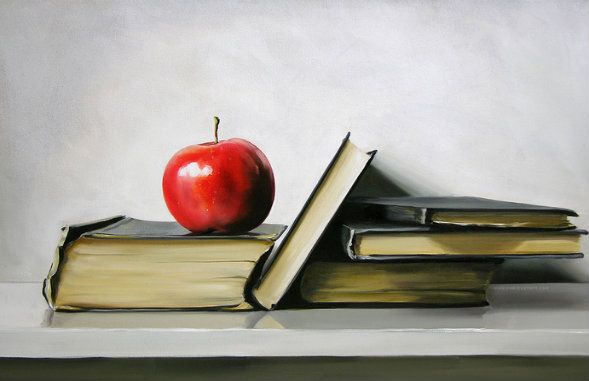The Chicago teachers strike has made two things abundantly clear: the utter disregard for students on the part of already well-compensated teachers, and the immense power of public unions, a key constituency of President Obama.
Once upon a time, public unions did not have the right to paralyze the public school system with demands for increases to salaries that are already $20,000 above the median salary in Chicago.
The Wall Street Journal has a piece by Hillsdale professor Paul Moreno in the opinion section on how these unions became so powerful. Their ascent was more recent than many of us imagine:
Before the 1950s, government-employee unions were almost inconceivable. When the Boston police unionized and went on strike in 1919, the ensuing chaos—rioting and looting—crippled the public-union idea.
Massachusetts Gov. Calvin Coolidge became a national hero by breaking the strike, issuing the dictum: "There is no right to strike against the public safety by anybody, anywhere, any time." President Woodrow Wilson called the strike "an intolerable crime against civilization."
Franklin D. Roosevelt also rejected bargaining by public unions. FDR recognized that, if a union can compel a sovereign state to do something, then that union, not the state, holds de facto sovereignty. It should be noted that the public sector workforce was expanding exponentially: in 1900 only 4 percent of the workforce got a paycheck from government; by 1970 an alarming 20 percent of American workers were employed by the government.
In the 1950s, the move to unionize government employees gained momentum. While President Kennedy didn’t give them the right to strike, compel workers to join unions, or bargain over pay, he did issue an executive order that permitted unionization.
Federal and state workers began to strike in the late 1970s and early 1970s, bringing cities to their knees, even though strikes were still against state laws. The financial burdens imposed by public unions grew and led, according to the article, to the rise of a conservative movement led in the U.S. by Ronald Reagan and in the U.K., by Margaret Thatcher.
Reagan faced a strike by the Professional Air Traffic Controllers (Patco), and he broke it. It was a huge show of determination by Reagan, but it wasn’t as decisive as Coolidge’s breaking an earlier strike:
Historians tend to depict the Patco strike as a replay of the 1919 Boston police strike, with Reagan as the new Coolidge. But breaking the Patco strike had zero impact on public unionism. It may have cooled the willingness to strike, but unions continued to flourish. Public employment and government unionism have grown more than the population since 1980. The Patco replacements soon joined the National Air Traffic Controllers Association and carried on Patco's work.
Nor did the breaking of the strike "send a signal" to private employers to take a hard line against their unions, as some historians of the time have suggested. The factors responsible for private-union decline antedated the Patco strike and continued after it. Reagan ultimately may have even helped the public-employee union movement: By stoking the nation's economic revival in the 1980s, he made the costs of public unions begin to seem less onerous, and polls suggested that American worries about the matter declined.
Public unions do well in flush times like the 1950s and 1960s, but they suffer when taxpayers feel their true cost, as in the 1970s—and today.
This would be a good time to revisit the issue of whether public workers should have the right to strike. Be interesting to know what the parents of school children in Chicago think about this. Would it be too much to ask that those who work for government, which provides more steady than other forms of employment than many citizens enjoy, be denied the right to strike?
The trade unionists at a meeting earlier this month in the U.K. sold T-shirts featuring a picture of Margaret Thatcher, who stood up to the unions, with the disgraceful slogan “A generation of trade unionists will dance on her grave.” Nice.
No wonder President Obama, who has rarely been known to give a speech that didn’t include a call to hire more (unionized!) teachers, has grown strangely silent about the Chicago strike. He probably has an inkling that public unions play for keepsies. Takes a lot to silence our loquacious leader, but this seems to have done the trick.
Very likely, the problem of out of control union demands cannot be solved by the party that is beholden to them.


